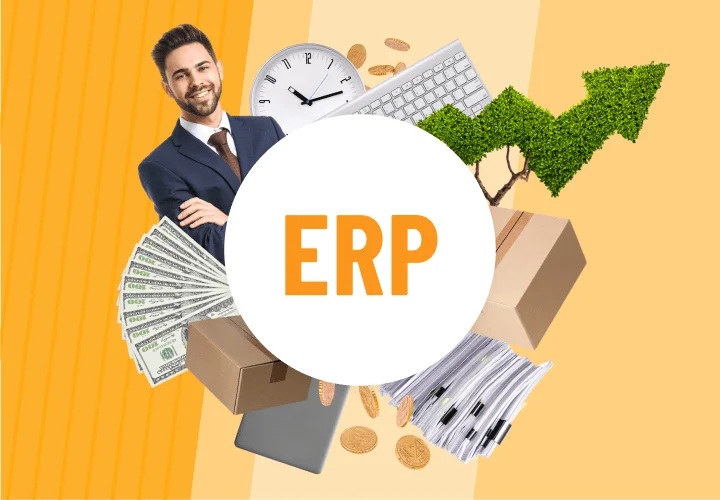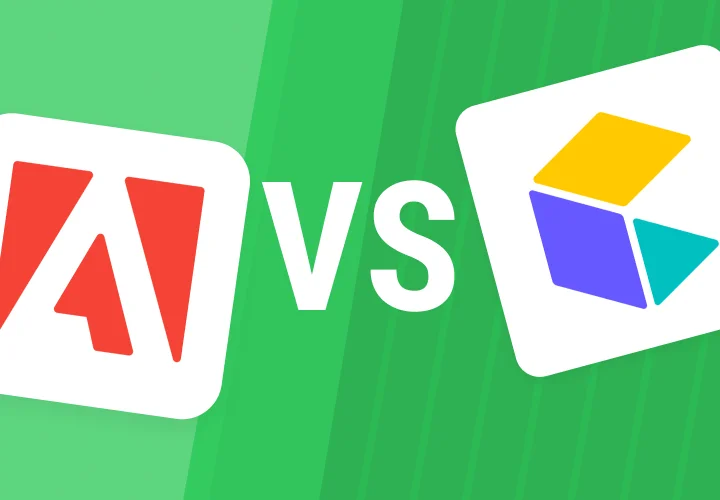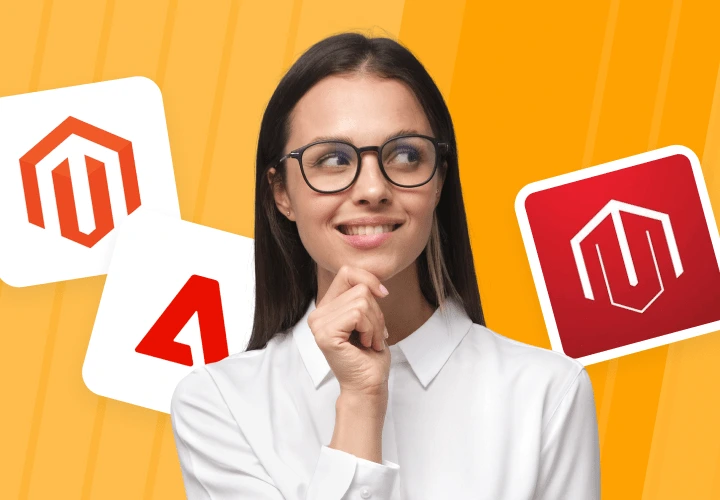2025’s Best B2B E-Commerce Platforms for Businesses
Table of contents
- B2B E-Commerce: Redefining Business Transactions in the Digital Era
- Choosing the Right B2B E-Commerce Solution: Key Factors to Consider
- Security
- Cost
- Integration
- Customization
- Key Features of an Outstanding B2B E-Commerce Platform
- Custom catalogs and pricing
- User roles and permissions
- Account dashboards
- Quoting system
- Quick order functionality
- Order templates
- Top B2B E-Commerce Solutions to Use in 2025
- Shopify Plus
- BigCommerce B2B Edition
- commercetools
- Adobe Commerce (formerly Magento)
- OroCommerce
- eWorldTrade
- Sana Commerce Cloud
- Salesforce Commerce Cloud
- NuORDER
- WooCommerce
- Quick eSelling
- Frequently Asked Questions About B2B E-Commerce Platforms
- What is the difference between B2B and B2C E-commerce platforms?
- How can a business benefit from B2B E-commerce?
- What is the best B2B E-commerce platform?
- Wrapping Up
B2B E-commerce is experiencing unprecedented growth, revolutionizing how businesses connect, trade, and scale globally. With the digital shift accelerating across industries, B2B E-commerce platforms are becoming the backbone of seamless, efficient, and cost-effective business transactions. Once considered a niche, E-commerce has transformed into a thriving ecosystem expected to dominate global trade dynamics. According to "Research and Market" forecasts, the B2B E-commerce sector is set to grow to an astounding $24.3 trillion by 2030, achieving a compound annual growth rate (CAGR) of 18.2% from 2023. This exponential growth reflects the increasing demand for sophisticated digital solutions tailored to modern enterprises' complex needs:
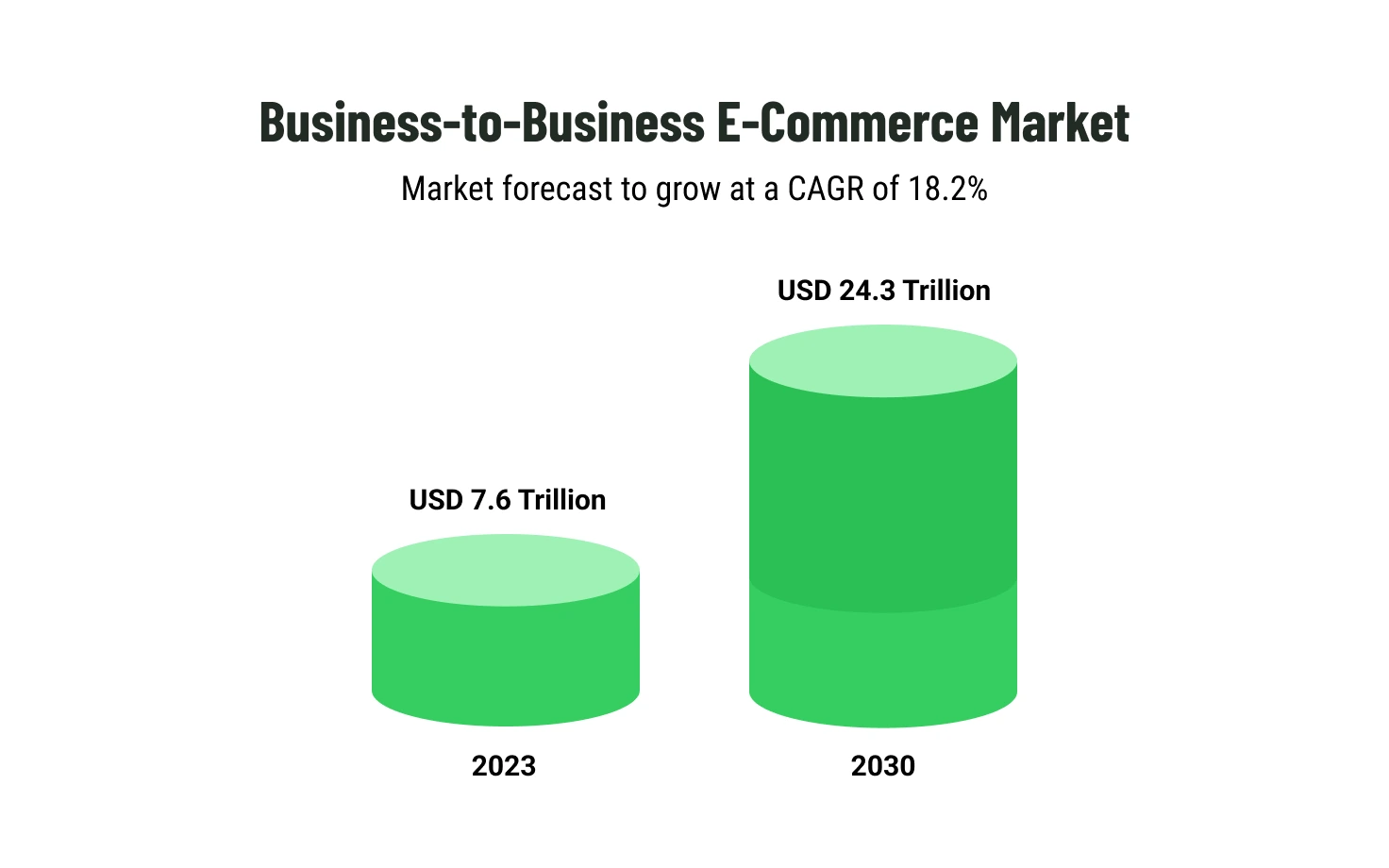
This growth isn't just about the numbers — it's about businesses' opportunities to tap into innovative platforms that enhance efficiency, streamline operations, and foster global connectivity. Whether simplifying procurement processes or expanding into new markets, B2B E-commerce platforms reshape how companies operate. The surge in adoption is driven by a range of factors, from the rise of remote work to the increasing integration of AI and analytics, all of which enable businesses to make data-driven decisions easily. Companies that fail to adapt, risk being left behind in an era where agility and scalability define competitive success.
In this article, we'll explore the best B2B E-commerce platforms of 2025, providing insights into the top solutions businesses should consider to stay ahead of the curve. From platforms that cater to enterprise-level operations to those designed for small and medium-sized businesses, these solutions empower organizations to thrive in an increasingly digital marketplace. As the market continues its explosive growth, understanding the key players and their offerings has never been more critical for businesses looking to scale their operations effectively. Let's dive into the platforms leading this transformation and discover what makes them indispensable in 2025.
B2B E-Commerce: Redefining Business Transactions in the Digital Era
B2B E-commerce has emerged as a transformative force in modern business, providing digital platforms that streamline how companies interact, transact, and grow. As a centralized portal, B2B E-commerce platforms enable enterprises to conduct research, place orders, and manage services efficiently. These platforms cater to various business relationships, from manufacturers working with distributors to wholesalers serving retailers, ensuring seamless transactions and collaboration.
A critical component of B2B E-commerce solutions is their ability to maintain accurate, secure, and tailored product pricing and promotional information, addressing businesses' dynamic needs. While B2B and B2C E-commerce platforms may share foundational similarities, their operational models and customer experiences differ significantly. B2B sales involve unique complexities, such as multi-tier approval workflows, wholesale transactions with repeat orders, and rational, data-driven buying decisions. Moreover, trust-based relationships, customized pricing structures, and options for credit payments further differentiate B2B platforms. These features make B2B E-commerce software convenient and necessary for businesses looking to thrive in a competitive market.
The benefits of adopting B2B E-commerce solutions are far-reaching. Companies can boost sales with tailored product recommendations, reduce operational costs, gain actionable insights through customer feedback, expand into global markets, and achieve data-driven decision-making with ERP integration. To get the maximum benefit, businesses should prioritize partnering with experienced development teams like Emerline. With expertise in delivering quality custom E-commerce development services, Emerline ensures your B2B solution will meet specific requirements, providing the functionality and scalability needed to succeed in a rapidly evolving digital marketplace.
Choosing the Right B2B E-Commerce Solution: Key Factors to Consider
Selecting the right B2B E-commerce platform is a critical decision that can directly impact your business's efficiency, scalability, and success. Making an informed choice requires evaluating solutions based on several crucial factors, ensuring they align with your operational needs and long-term goals.
Security
Sensitive data, such as customer information, pricing structures, and payment details, is exchanged frequently in the B2B world. Ensuring robust security features is non-negotiable when selecting the right platform. Look for solutions with advanced encryption, secure payment gateways, and compliance with industry standards like GDPR or PCI DSS. A secure platform safeguards your business, and fosters trust with clients, which is essential in the B2B space.
Cost
The financial aspect of implementing a B2B E-commerce solution can vary widely depending on the platform's features, subscription plans, and customization options. Businesses must assess upfront and ongoing costs, such as licensing fees, maintenance, and transaction charges. Consider the value provided by the platform in terms of ROI, ensuring that it fits within your budget while delivering scalable benefits over time.
Integration
Connecting existing systems, such as ERP, CRM, and inventory management software, is crucial for a seamless operational workflow and requires the participation of an experienced E-commerce integration service provider. A B2B E-commerce platform should offer compatibility with your current tech stack, reducing the need for manual data entry and minimizing errors. Platforms supporting API integrations allow companies to centralize operations and make more effective data-driven business decisions.
Customization
Every business has unique requirements, from specific user interface preferences to tailored pricing models and workflows. The right B2B E-commerce solution should offer flexible customization to meet these particular needs. Look for platforms that allow you to modify features, add custom functionalities, and brand the interface to align with your company's identity. A solution that grows with your business and adapts to market trends ensures long-term success.
By carefully evaluating these factors—security, cost, integration, and customization—businesses can select the most suitable platform to craft the best E-commerce solutions that meet their immediate requirements and empower them to scale and adapt in an ever-changing market landscape.
Key Features of an Outstanding B2B E-Commerce Platform
An exceptional B2B E-commerce platform goes beyond offering basic functionality; it incorporates features tailored to the unique needs of businesses, ensuring a seamless and efficient buyer-seller interaction. Here are the key features to look for in a top-tier platform:
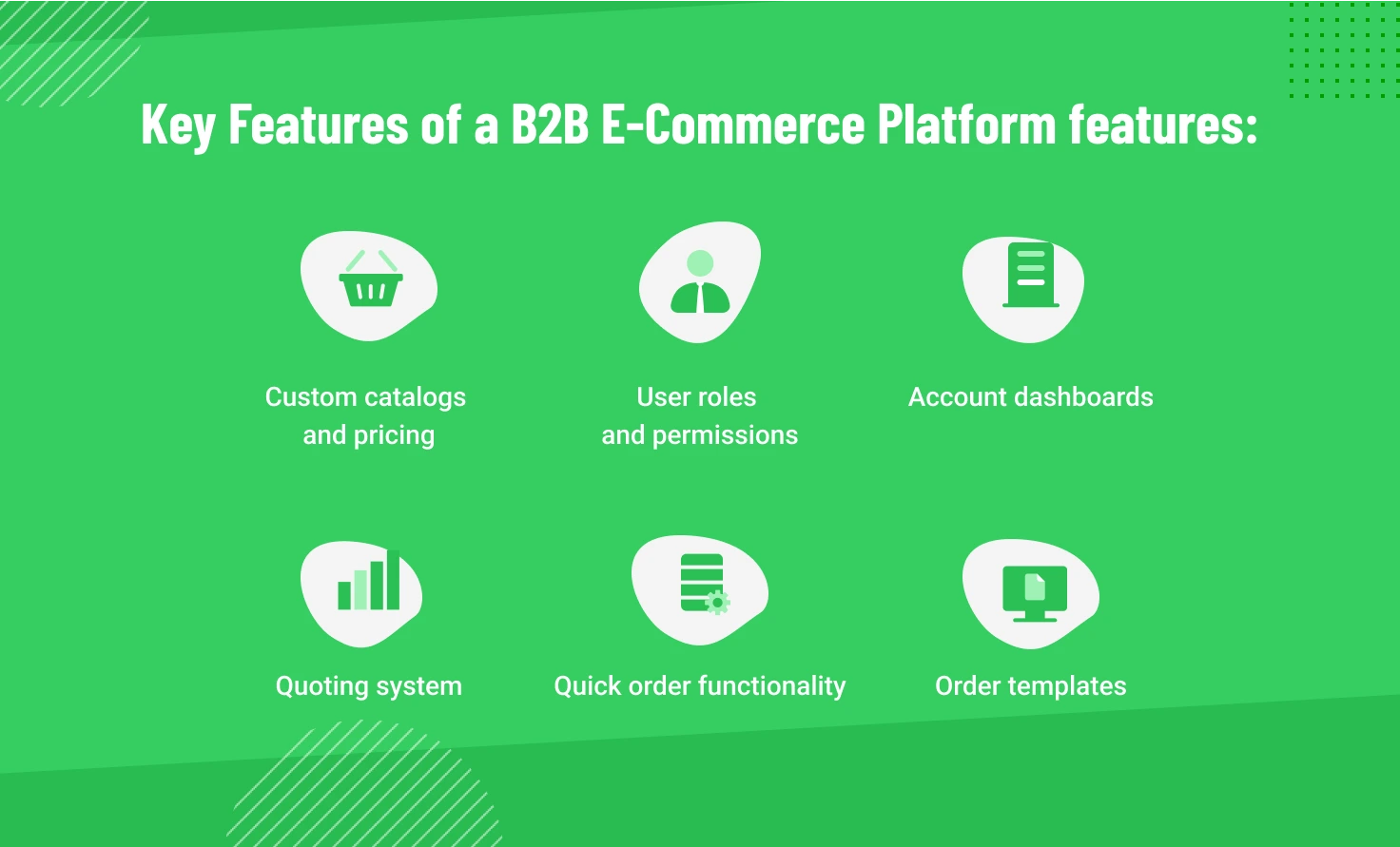
Custom catalogs and pricing
Unlike B2C platforms, B2B E-commerce solutions must accommodate personalized pricing and product catalogs tailored to specific clients or groups. This feature allows businesses to display only relevant products and offer negotiated pricing, creating a more customized and efficient buying experience.
User roles and permissions
B2B transactions often involve multiple stakeholders, from procurement managers to finance officers. A platform with role-based user permissions allows companies to manage access and follow the workflows effectively. This ensures that users can access the tools and information relevant to their role, streamlining operations and enhancing security.
Account dashboards
An intuitive account dashboard is essential for providing customers with a comprehensive view of their transaction history, order status, and invoices. By centralizing all account-related information in one place, businesses improve transparency and enable clients to manage their orders independently, reducing the need for manual support.
Quoting system
The ability to request and manage quotes is a fundamental feature of any B2B E-commerce platform. This functionality lets buyers negotiate terms and pricing directly within the platform, fostering stronger client relationships and simplifying the procurement process.
Quick order functionality
Quick order tools are invaluable for businesses dealing with repeat purchases or bulk orders. This feature allows buyers to input product codes or upload order lists, drastically reducing the time spent searching for products and finalizing purchases.
Order templates
Order templates enhance efficiency for clients with regular purchasing needs. By saving frequently ordered items in pre-defined templates, buyers can quickly replicate orders, minimizing repetitive tasks and ensuring consistency in procurement.
A B2B E-commerce solution equipped with these features enhances operational efficiency and strengthens relationships with clients by offering a more tailored, user-friendly experience. If you want to build a custom platform or improve your current system, consider asking our B2B marketplace developers for help. They will deliver a solution that meets your unique business needs.
Top B2B E-Commerce Solutions to Use in 2025
Choosing the right B2B E-commerce platform is essential for businesses looking to scale, streamline operations, and enhance customer experiences. Below, we explore the leading platforms that stand out in 2025 for their unique features, pricing structures, and impressive client portfolios.
Shopify Plus
Shopify Plus, the enterprise edition of Shopify, is a powerful solution for businesses looking for ease of use and scalability. While retaining the core features of Shopify, it enhances functionality and tools specifically for B2B operations.
Key advantages:
- 100% secure solution with Level 1 PCI DSS compliance for credit card processing.
- Omni-channel capabilities with access to 23 sales channels from the dashboard.
- Internationalization support through Shopify Payments is available in multiple currencies and languages.
- Automated wholesale experience with the Wholesale Channel for customizable storefronts and pricing.
- Customizability using Scripts Editor for a tailored checkout experience.
Pricing: Starts at $2,000/month, with additional costs for apps and customizations.
Renowned clients: Heinz, Staples, Nestle, Unilever, Kylie Jenner, and Gymshark.
BigCommerce B2B Edition
BigCommerce B2B Edition is designed specifically for manufacturers, wholesalers, and distributors. Known for its low total cost of ownership, it integrates seamlessly with mission-critical systems and supports both B2B and B2C operations.
Key advantages:
- Robust security measures with ISO/IEC 27001:2013 compliance and PCI DSS Level 1 certification.
- Internationalization support with BigCommerce Payment for 100+ currencies and localization features.
- Versatile customization options include drag-and-drop Page Builder for easy site edits.
- Wholesale features like payment method visibility control, buyer roles, and invoice portal.
- Omnichannel capabilities through integrations with major social media platforms and marketplaces.
Pricing: Starts at $500/month, depending on enterprise requirements.
Renowned clients: Ben & Jerry’s, Skullcandy, and CamelBak.
commercetools
Commercetools is perfect for businesses seeking a highly adaptable and future-proof B2B E-commerce platform. It sets a high benchmark for innovation and customer satisfaction.
Key advantages:
- With API-driven architecture, commercetools allows businesses to build custom front-end experiences while maintaining powerful back-end functionality.
- The platform is scalable and grows with your business, efficiently handling high volumes of transactions and complex catalogs.
- Seamlessly integrates with multiple channels, including mobile apps, social platforms, and in-store systems, enabling a cohesive customer experience.
- Commercetools provides extensive customization options, empowering businesses to tailor the platform to unique operational needs and branding.
- Built on a microservices architecture, it ensures high availability, automatic scaling, and continuous updates without downtime.
Pricing: approximately $50,000 annually (based on GMV and API usage)
Renowned clients: Audi, AT&T, and Carhartt.
Adobe Commerce (formerly Magento)
Adobe Commerce, formerly Magento Commerce, is a robust solution offering extensive customization options for B2B and B2C needs. With both Magento Open Source and Adobe Commerce editions, it caters to a wide range of businesses.
Key advantages:
- Comprehensive internationalization features supporting currency from over 200 countries.
- Open-source customization with access to the source code for extensive modifications.
- Robust security features, including SSL certificate, CDN, and PCI certification.
- B2B-specific features like buyer roles, multiple tiers, and Payments on Account.
- Omnichannel experiences are facilitated through the Order Management System.
Pricing: Starts at $22,000/year for the basic enterprise edition.
Renowned clients: HP, Coca-Cola, and Canon.
OroCommerce
OroCommerce is a flexible, enterprise-grade B2B E-commerce platform tailored for B2B businesses with complex workflows and requirements. Offering a free Community Cloud and a paid Enterprise Edition, it caters to manufacturers, distributors, wholesalers, and suppliers.
Key advantages:
- Built-in CRM system at no additional cost.
- Strong security measures with roles and permissions based on ACL, PCI DSS compliance, and SOC 2 Type 2 certification.
- Extensive internationalization support with multiple languages, currencies, and tax rules.
- Open-source architecture allows near-limitless customization.
- B2B-specific features for personalized customer experiences and quick orders.
Pricing: Pricing details of OroCommerce Enterprise Edition are available upon request.
Renowned clients: Dunlop Protective Footwear, Animal Supply Co., and Petra.
eWorldTrade
eWorldTrade is a rapidly growing global B2B marketplace platform connecting millions of businesses worldwide. As a fast-growing player in the B2B industry, it emphasizes connecting genuine and reliable buyers and sellers. The platform supports trading in multiple currencies, offers robust security features, and encourages businesses to join for improved trade procedures.
Key advantages:
- Rapidly growing B2B marketplace platform with global reach.
- Strong security measures with PCI certification and various security elements.
- Multilingual and multi-currency support for international transactions.
- Business expansion through customization of storefronts and banners.
- Omnichannel expansion with inventory management that simplifies sales across channels.
Pricing: Five premium pricing plans ranging between $399 and $7999 per year.
Renowned clients: Telecom Estate, Clear Digital Technology, Hong Kong Kele Industrial Co.
Sana Commerce Cloud
Sana Commerce Cloud is a leading B2B platform committed to providing a reliable and convenient shopping experience. Focusing on capturing buyer loyalty, it offers a scalable E-commerce solution with proper ERP integration.
Key advantages:
- Complete ERP integration for a transparent, self-service experience.
- Top-level security measures and compliance with PCI standards.
- Internationalization support with multi-currency and multilingual features.
- Effortless front-end Visual Designer for easy customization.
Pricing: Custom pricing based on ERP compatibility and business size.
Renowned Clients: Vera Bradley, K-Rain Manufacturing, Mitsubishi.
Salesforce Commerce Cloud
Salesforce Commerce Cloud is a multi-tenant, cloud-based platform for large enterprises purchasing bulk orders. It emphasizes customer data protection and offers robust security measures and outstanding features for B2B E-commerce. It is a top-tier solution offering AI-driven insights and scalability.
Key Advantages:
- Robust security and privacy program.
- Internationalization with multiple currencies and languages.
- Omnichannel features, including Commerce Cloud Order Management.
- Customization with tools like Page Designer.
Pricing: B2B Starter plan for 1% and B2B Growth plan for 2% of annual gross merchandise value.
Renowned clients: ASU, Sunnova, Ford, Gucci.
NuORDER
NuORDER is a B2B platform designed specifically for wholesale and fashion brands. It facilitates a two-way marketplace and connects brands and retailers for a collaborative wholesale process.
Key advantages:
- Protection of personal information with compliance to Privacy Shield Principles.
- Multilingual support and multiple currencies.
- Order management features and smart analytical dashboards.
- Integration with Stitch Labs for enhanced omni-channel capabilities.
Pricing: B2B pricing starts at $600/month, with specific pricing information available upon request.
Renowned clients: Nordstrom, Arc'teryx, and Coach.
WooCommerce
WooCommerce B2B, the official E-commerce plugin for WordPress-based websites, empowers businesses to create and manage personalized online stores that align with the distinct needs of B2B commerce. With features like content ownership, payment gateway integration, shipping options, and seamless integration with other software, WooCommerce ensures a robust user experience while prioritizing security and scalability.
Key advantages:
- Prices can be visible for registered customers.
- Multiple customer groups with personalized discount rates.
- Product prices, including wholesale discounts, can be based on customer groups.
Pricing: The WooCommerce B2B plugin price is $99, available as a one-time payment.
Renowned clients: Weber, Airstream, and Ripley’s Believe It or Not.
Quick eSelling
Quick eSelling is a fully managed mobile-first hosted E-commerce platform for B2B businesses. A robust CRM enables business owners to sell round the clock, streamline processes, and free up the sales team’s time.
Key advantages:
- Comprehensive server, transaction, and data security with firewalls and encryption.
- SSL certificates for domain security and the option to upload custom SSL certificates.
- Integrated with multiple payment gateways for global usability.
- Features like multi-currency, multilingual support, and Tax APIs.
- Fully customizable and scalable platform with a customizable front-end.
- Automated wholesale order management with real-time inventory updates.
- In-built marketing tools for enhanced business decisions.
- Allows selling on multiple channels like E-commerce marketplaces simultaneously.
- Facilitates selling on platforms like Amazon or Flipkart alongside the online store.
Pricing: Quick eSelling offers four pricing plans, from a free trial to a Premium plan with ERP integrations, for $599/month.
Renowned clients: JadeBlue
With these top B2B E-commerce platforms, businesses can expect better efficiency, more personalized customer experiences, and robust scalability to meet their growing demands in 2025. Choose the one that aligns with your goals to stay ahead in the competitive digital landscape.
Frequently Asked Questions About B2B E-Commerce Platforms
What is the difference between B2B and B2C E-commerce platforms?
B2B (business-to-business) E-commerce platforms cater to businesses selling products or services to other companies, while B2C (business-to-consumer) platforms focus on selling directly to individual consumers. B2B platforms prioritize features like custom catalogs, bulk pricing, user roles, and negotiation tools, reflecting businesses' complex buying processes. On the other hand, B2C platforms focus on a smooth, intuitive customer journey with streamlined product listings, one-click purchases, and emotional branding strategies.
How can a business benefit from B2B E-commerce?
B2B E-commerce solutions offer several advantages, including:
- Increased efficiency through automation of repetitive tasks like order processing and inventory management.
- Enhanced customer experience with features like account dashboards, order tracking, and tailored pricing.
- Broader market reach, as businesses can expand into new regions and industries without the need for physical presence.
- Access to valuable insights through analytics, helping companies to optimize their strategies.
- Cost savings by reducing operational overhead and manual errors.
What is the best B2B E-commerce platform?
The best B2B E-commerce platform selection depends on your business's unique needs and requirements. For instance, businesses prioritizing scalability might prefer commercetools, while those seeking an out-of-the-box solution may choose Shopify Plus. Factors like budget, industry, customization needs, and integrations should guide your decision. Partnering with experts, such as the Emerline team, for E-commerce software development can help you make an informed choice.
Wrapping Up
The rapidly evolving landscape of B2B E-commerce offers immense opportunities for businesses to thrive in 2025 and beyond. Adopting the right platform is crucial for staying competitive with the market projected to grow significantly. From robust solutions like Shopify Plus and Commercetools to niche players like OroCommerce, businesses have various platforms to meet their needs.
Whether you're starting your journey or looking to upgrade your current solution, investing in a tailored, innovative B2B E-commerce platform is a strategic move toward long-term success.
Updated on Feb 19, 2025

